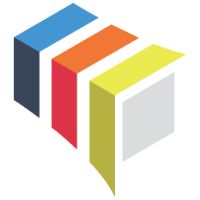QUESTIONS? CALL:
+1 (833) BOODSKAp
Soil Health Monitoring with Boodskap's IoT Platform
PRODUCT DESCRIPTION
- Soil Health Monitoring involves the use of IoT technology to continuously monitor soil conditions such as moisture, pH, nutrient levels, and temperature. Boodskap's IoT Platform as a Service (PaaS) provides a comprehensive solution for collecting and analyzing soil data, helping farmers to optimize soil health and improve crop productivity.
- Boodskap’s IoT platform integrates various soil sensors and monitoring devices to collect real-time data on soil conditions. The platform’s data analytics and visualization tools enable farmers to make informed decisions regarding irrigation, fertilization, and crop management. The system can provide alerts and recommendations to maintain optimal soil health.
- Soil health monitors for comprehensive soil analysis
- Nutrient analyzers to measure soil nutrient levels
- Soil probes for in-depth soil condition assessment
- Soil Moisture Sensors: Measure the moisture content in the soil to optimize irrigation.
- pH Sensors: Monitor the acidity or alkalinity of the soil.
- Nutrient Sensors: Track the levels of essential nutrients in the soil.
- Temperature Sensors: Measure the soil temperature to ensure optimal growing conditions.
- LoRaWAN: Provides long-range, low-power communication between field sensors and the central IoT platform.
- Zigbee: Suitable for creating a mesh network of sensors within a farm area.
- NB-IoT: Ensures reliable connectivity in remote farming areas with limited network infrastructure.
- MQTT (Message Queuing Telemetry Transport): A lightweight messaging protocol for real-time data communication between sensors and the IoT platform.
- A farmer utilizes Boodskap’s IoT platform by deploying soil moisture, pH, nutrient, and temperature sensors throughout their fields. These sensors continuously collect data on soil conditions and transmit it via LoRaWAN to the Boodskap platform. The platform analyzes the data and provides real-time insights and recommendations for soil management. The farmer can monitor the soil health via a centralized dashboard and receive alerts for any anomalies, allowing for timely interventions to maintain optimal soil conditions.
- Enhanced Crop Productivity: Optimal soil conditions lead to healthier plants and higher yields.
- Resource Efficiency: Reduces the need for excessive water and fertilizers, lowering costs and environmental impact.
- Improved Soil Management: Provides detailed insights into soil health, enabling better management practices.
- Real-Time Monitoring: Offers continuous data on soil conditions, allowing for proactive management.
- Predictive Analytics: Anticipates potential issues such as nutrient deficiencies, helping to prevent crop failures. By leveraging Boodskap’s IoT platform for soil health monitoring, farmers can achieve significant improvements in soil management, crop productivity, and sustainability, making their agricultural operations more efficient and profitable.

